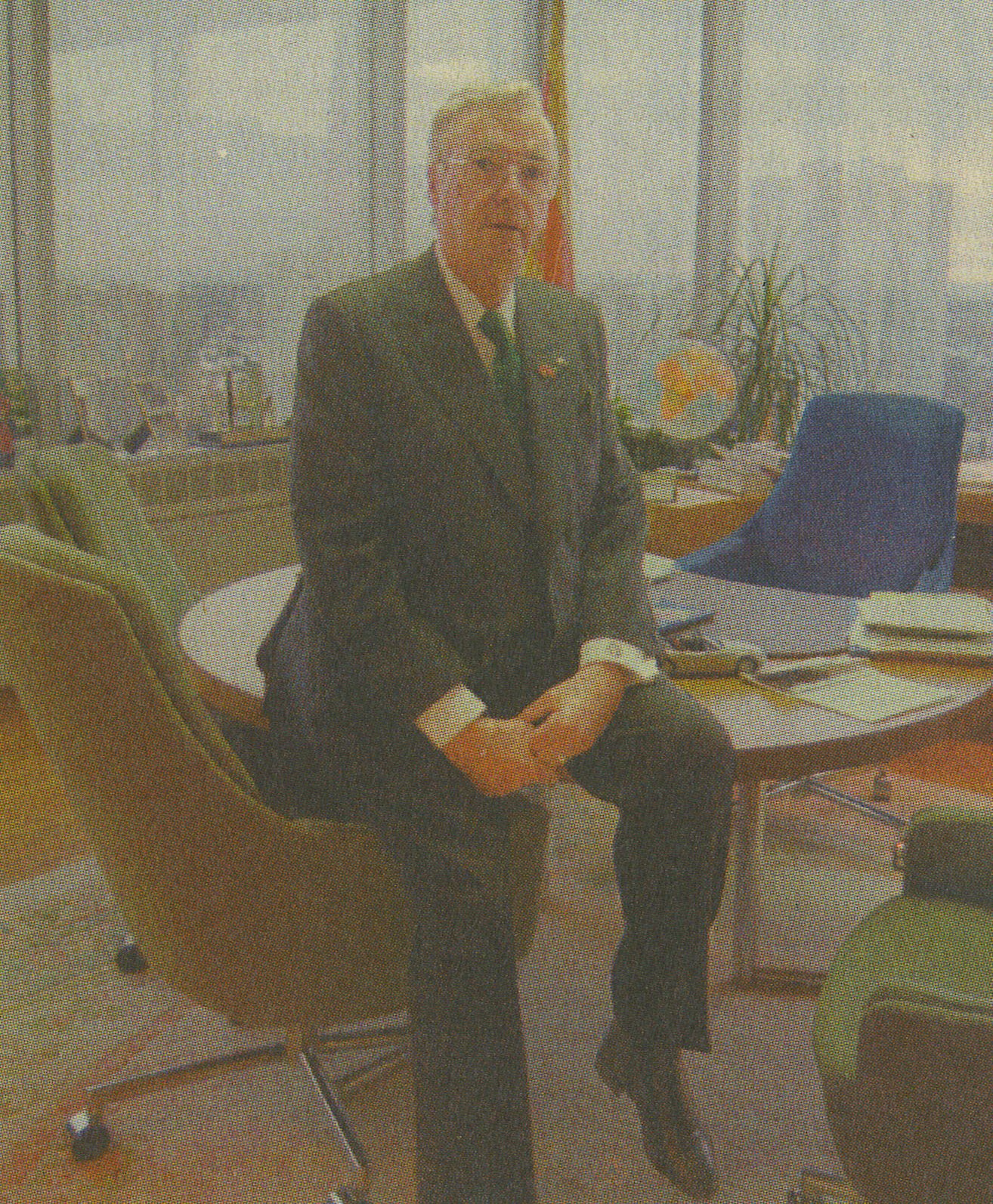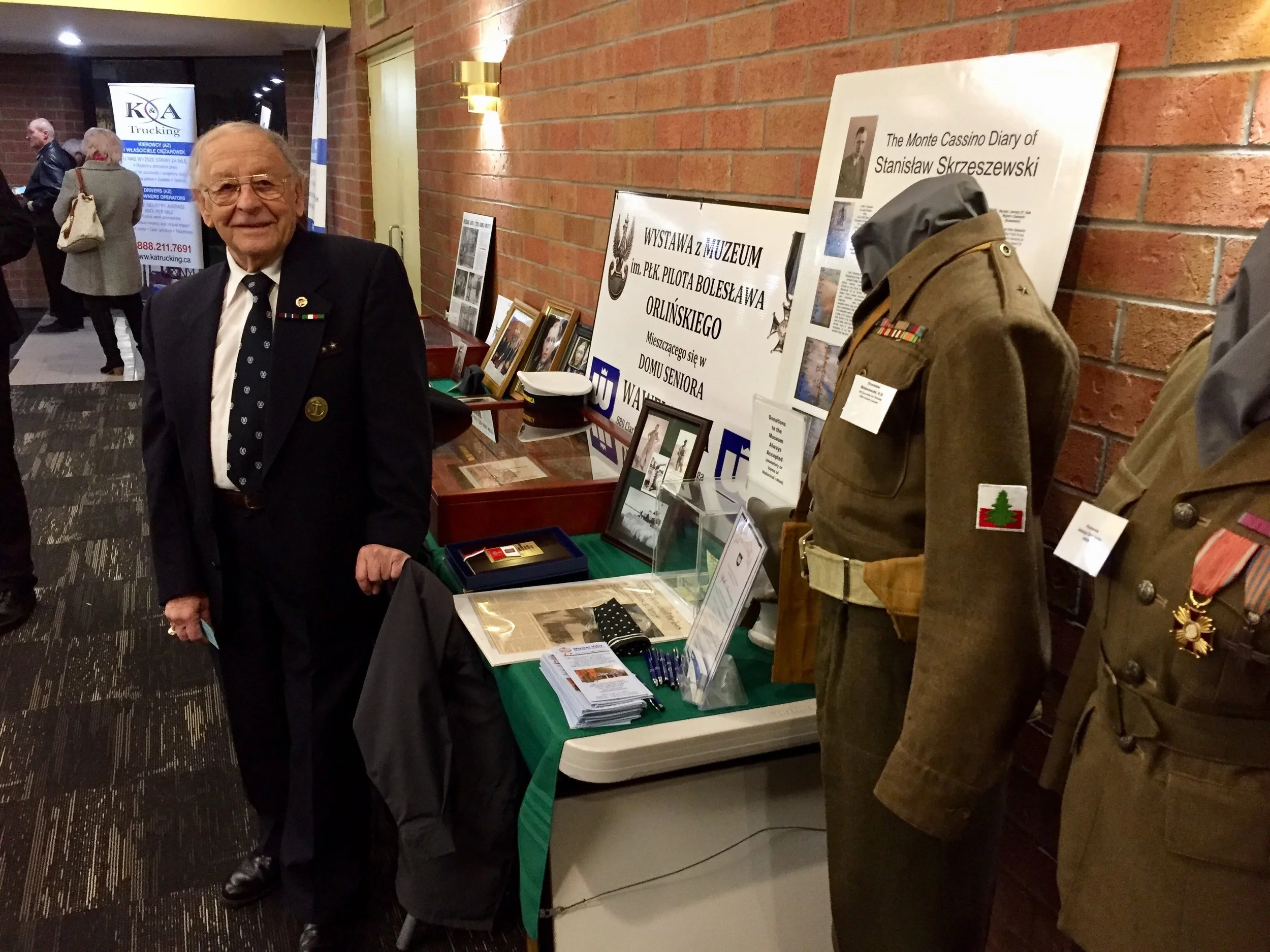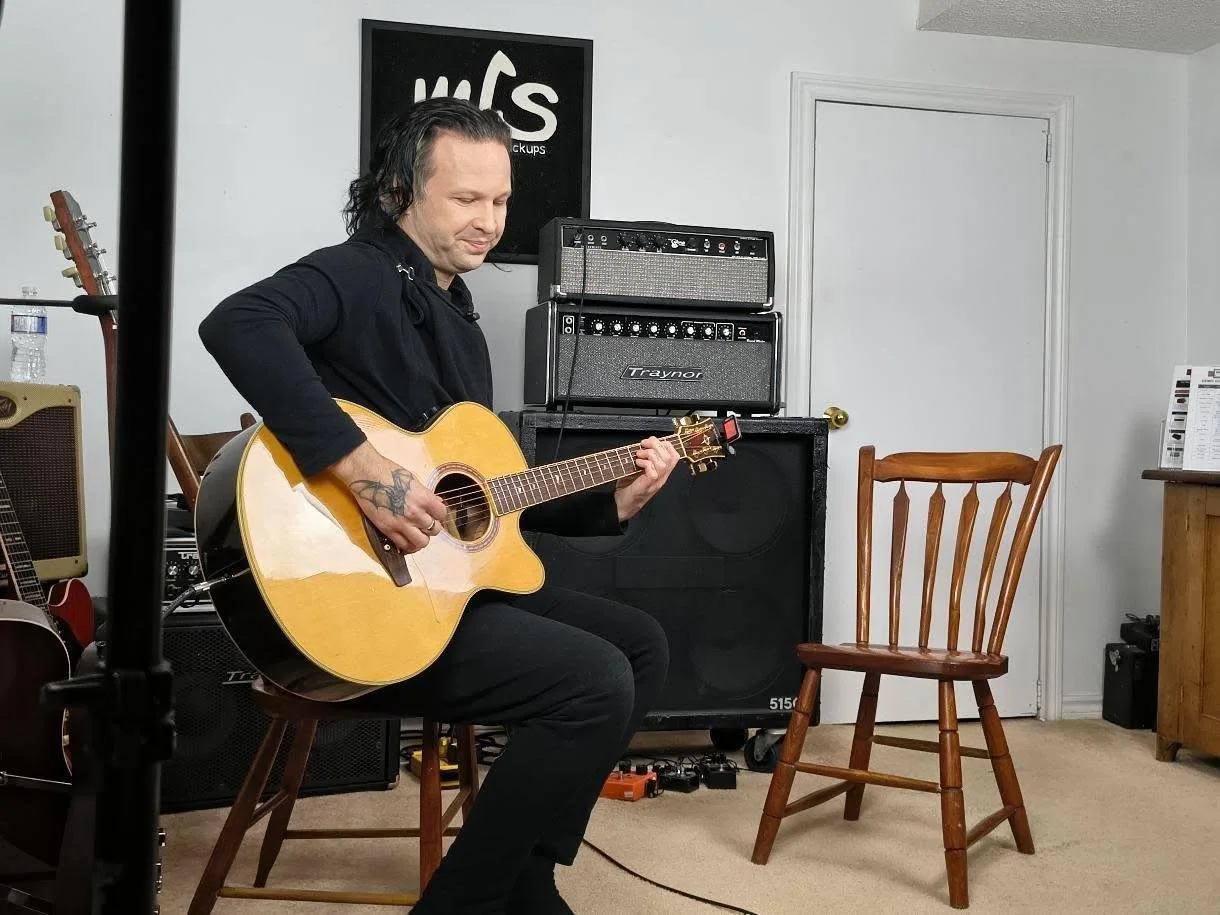Prisoners of War at the Cooksville Brickyard in Mississauga: What Does it Mean to be Canadian?
/We invite you to visit Heritage Mississauga’s office at The Grange (1921 Dundas Street West) to view the exhibit and marvel at our collection of ships in bottles, unique works of art created by the German Merchant Marine POWs at the Cooksville brickyard, and to help us explore and document the stories connected to them. We know of some of these stories thanks to the research undertaken by Zoe Arruda through the University of Toronto Mississauga Historical Studies Internship Program. The exhibit will be on display until September. This article is a continuation of the ongoing series focusing on the lives of some of the POWs while they were in Canada.
Franz Jenisch 1953
From 1944 until 1946, more than 200 Prisoners of War (POWs) worked at the Cooksville Brickyard, employed as a part of a program led by the Department of Labour of Canada. While they were here, they connected with the Cooksville community and formed all kinds of relationships—they made friends, found partners, and snuck out to explore life in several cities spanning from as far as Niagara Falls to Toronto. The especially relaxed security at the Brickyard and close proximity to Canadian civilian workers resulted in easy escapes and relationships that broke the laws of the National Defence Act.
While most of the POWs were repatriated by 1947, we currently know of two incredible cases where they had run away, remained in Canada, and built lives here: Franz J. Jenisch, and Glenn Douglas (who was previously known as Heinz Fromme).
Franz Jenisch was an Austrian engineer aboard a German merchant vessel and was docked at a previously neutral port in the Dutch East Indies when Germany invaded on May 10, 1940. At this time, he was captured as a POW, and later ended up working at the Cooksville Brickyard five years later in July 1945. He was employed there for about nine months before security concerns heightened, which meant that working POWs would be returned to Camp 23 at Monteith and later repatriated to Germany. Jenisch had enjoyed his time in Canada and applied for permission to stay in the country after the war ended, but he had not heard back about his application. “Then I do this foolish thing,” Jenisch says. He knew that prisoners at Cooksville were pretty much free to come and go, so he successfully escaped by simply taking a walk. He did not return in 1946, and instead travelled to Hamilton to begin a new life.
Glenn Douglas Family
Jenisch was found again seven years later in 1953 working at a machine shop in Hamilton, and was arrested. He was 50 years old at the time. Many people in the community had kind things to say about him. In an interview for an article for the Hamilton Spectator, his partner, Mrs. C. Taylor, worries about the man she loves:
“He is such a good man. Always helping someone else, whenever they are in trouble. His is kind and gentle to everyone. They should not send him back to Germany where he does not want to go… He is a good man to have in the country. I wish all the people could know him as he is, and not think of him as an escaped prisoner. Then they would not want to send him away from all his friends.”
After his arrest, he spoke with officials and expressed a desire to stay in Canada, and immigration officials were open to his case since he had been an exemplary citizen for the previous seven years. The case caught the attention of the press, and several articles were published about Jenisch, which caught the attention of a previous POW co-worker from Cooksville: Glenn Douglas. Though, back then, Jenisch would have known him as Heinz Fromme.
Fromme was a younger POW who also worked at the Brickyard. He arrived in Cooksville in January 1945. Later that year, he met a woman named Herti Kaiser who was cycling by the Brickyard with her friends. Kaiser and her parents were Austrian and had come to Canada when she was three, but she had still been able to speak German, and as such, was able to speak with the POWs when she was passing by. After their initial chat, Kaiser continued to visit Fromme, and the two exchanged letters as well, becoming friends. As they got closer, their relationship gradually turned romantic.
In November 1946, rumours of deportation began to spread around the camp. Fromme had also applied for a Canadian citizenship after the war ended, but believing he was to be repatriated the next day, he panicked and made a hasty escape, walking out of the camp and catching a bus to Toronto. From there, he bought a train ticket to Winnipeg to start a new life. It was at this moment he chose the name Glenn Douglas, which he kept even after later being revealed as a runaway POW.
Douglas and Kaiser were separate from some time, though Douglas still wrote letters to Kaiser, but sparsely, as both were worried that it wasn’t safe to do so. Kaiser was sick with apprehension, remaining in Toronto to work as a lingerie designer while Douglas had settled in Marathon, Ontario, and begun working in the bush for the Great Lakes Paper Co. He joined a union, grew a beard, and even pursued his interest to become a part-time photographer. Douglas and Kaiser reunited after some time had passed, and the couple got married in 1949 in Fort William. One year later, in 1950, Kaiser gave birth to their son, Peter.
After building a family and a life in Canada, Douglas became increasingly worried that he may be recognized and discovered by someone. In the Spring of 1953, after reading about his former fellow POW Franz Jenisch in the paper and seeing the support he received to remain in the country, Douglas developed a plan to drive to Ottawa with his wife to turn himself into the RCMP. He hoped to receive the same mercy as Jenisch, no longer wanting to live in fear of being torn apart from his family. The citizens of Marathon also had kind things to say about the Douglases, known as hard workers.
It seems that both Jenisch and Douglas were ultimately granted Canadian citizenship. Their time as POWs in Cooksville gave them the opportunity to fall in love with Canada, and the people in their communities.












